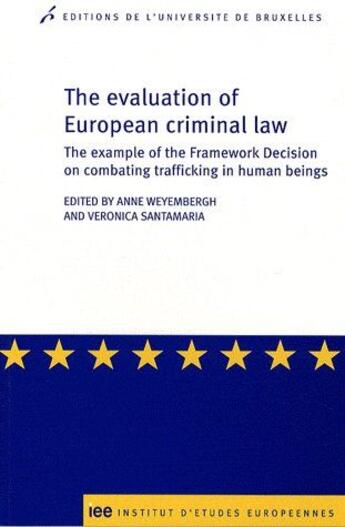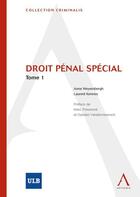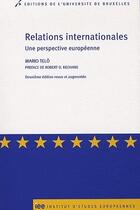Résumé:
The role of evaluation has become increasingly important in the context of eu policies in the field of judicial cooperation in criminal matters.
This evolution is the result of an increasing number of legally binding instruments adopted in the framework of the third pillar of the european... Voir plus
The role of evaluation has become increasingly important in the context of eu policies in the field of judicial cooperation in criminal matters.
This evolution is the result of an increasing number of legally binding instruments adopted in the framework of the third pillar of the european union and of their growing impact on national legal systems. evaluation represents an essential tool to appreciate the legislative and practical implementation of existing european criminal law and to assess and mea-sure in greater detail the effects and impact of eu legislation.
Therefore, it ptays a significant rote in the establishment and strengthening of mutual trust in the eu area of freedom, security and justice. this book aims at developing a methodology for the assessment of the implementation and impact of european criminal law. the main pur-pose of this exercise is to test this methodology on the framework decision of 19 july 2002 on combating trafficking in human beings.
The choice of this legal instrument is particularly appropriate since it is aimed at harmonising the member states' national laws as regards a most serious and specific offence which is related to modern slavery and exploitation of human beings. the book starts with a general analysis of evaluation. this is followed by a series of country chapters, analysing the transposition and implementation as well as the impact of the framework decision on trafficking in human beings in 12 selected member states of the european union.
These contributions served as the basis for more general conclusions drawn up in the final part of the book. this book is the result of a team work performed by academics and researchers who are members of eclan (european criminal law academic network).
Donner votre avis










